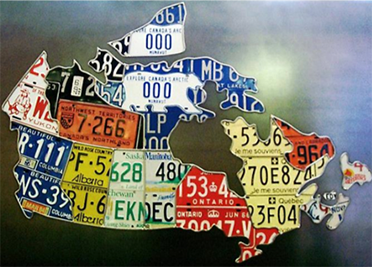Licensing
Software Column
by Allen McLean, RN, MN, MSc, PhD(c)
Allen is currently a PhD student in Health Sciences at the University of Saskatchewan (Saskatoon) in the Computational Epidemiology and Public Health Informatics Lab. His research interests include the development of computer modeling and simulation software for addressing health systems challenges, chronic diseases and health inequities at the population level, as well as mobile technologies applied in long-term care facilities. Allen previously attended the University of Victoria earning an MN and MSc (Health Information Science) in a unique dual degree program for Nursing Informatics professionals. Allen has over 20 years’ experience in healthcare as an ultrasound technologist, clinical educator, team leader and community health RN.
COLUMN

Like many of you, each year I renew my RN registration. Licensing is an important part of nursing practice (BCCNP, 2019) – the process helping to ensure we maintain the high standard of care we provide to our clients, and one of the reasons nursing is consistently seen as the most trusted profession in Canada and around the world (Canadian Nurses Association, 2019). Licensing is equally important for most of our colleagues also working in healthcare. I say mostbecause not all occupations or professions providing services in healthcare require licensing. Specifically, I am thinking about software engineers or programmers – many of the people coding the software running our devices and systems. Voluntary certification is available, but this training tends to focus on information technology, with little emphasis on applications in healthcare. And while I have no doubt these folks are well-intentioned, in my experience most have graduated from traditional computer science programs, not schools of health informatics, and often have a limited understanding concerning the special requirements when coding software used in medical settings.
But why might this be a problem? Well, I think many of us would agree that information technology is now ubiquitous in all areas of healthcare, and the software we rely on for running the various devices and systems we depend on has a critical role to play in patient care. Sadly, software defects have resulted in people experiencing increased morbidity and even death. The US Food and Drug Administration (FDA) now classifies software defects in medical devices as ‘Class I Recalls’, the most urgent type of recall that the FDA will issue. In an FDA Class I Recall, there is significant and immediate danger of death or other serious injury from the use of the product being recalled. Class I Recalls are rare, but software defects rank 4th among reasons for recent recalls (MDDI, 2016). Other reasons include battery failure, faulty alarms, faulty power switches, and manufacturing glitches.
Clearly this is a serious issue. Software developers may not provide direct patient care, but their work has significant implications for patients in any healthcare setting. The recent tragic events surrounding the Boeing 737 Max highlight the importance of rigorous software design. Boeing outsourced the coding of some flight software to temporary workers paid as little as $9 per hour (Bloomberg Technology, 2019). Imagine if this was happening among providers of medical devices and systems. Do you think software developers working in healthcare should be licensed? Maybe they should hold specific credentials or certifications? Perhaps graduation from a school of health information science should be a requirement for employment in this area? I really don’t know the answer, and I’m not even sure that licensing developers would reduce the incidence of software defects in medical devices and systems. That said, I do believe this presents some nursing informatics (NI) professionals with an interesting opportunity – learn to code! Nurses who code are some of the most insightful and powerful software developers I’ve met, and a tremendous resource in any healthcare setting. The combination of nursing experience, software development skills, and our professional licensing make us a rare and sought-after group – a group I am proud to be part of.
References
BCCNP. (2019). About BCCNP. https://www.bccnp.ca/bccnp/Pages/Default.aspx
Bloomberg Technology (2019). Boeing’s 737 Max Software Outsourced to $9-an-Hour Engineers.https://www.bloomberg.com/news/articles/2019-06-28/boeing-s-737-max-software-outsourced-to-9-an-hour-engineers
Canadian Nurses Association. (2019). Our Members. https://www.cna-aiic.ca/en/about-us/our-members
MDDI. (2016). 7 Medical Device Failures Causing Serious Recalls. https://www.mddionline.com/7-medical-device-failures-causing-serious-recalls






